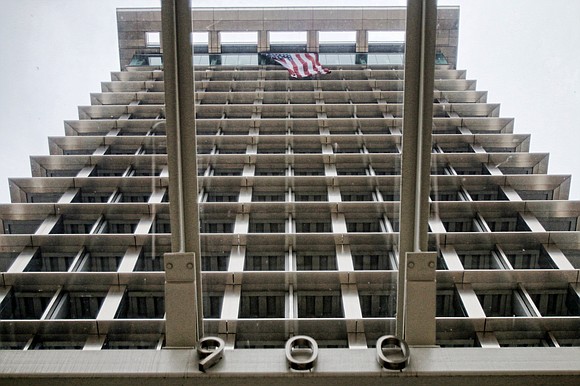City reportedly has a $70M general fund surplus
Jeremy M. Lazarus | 11/17/2022, 6 p.m.
Richmond’s treasury is bulging with unspent dollars, according to two members of City Council.
While neither would go on the record, both told the Free Press that they have been advised that City Hall will report a record general fund surplus of up to $70 million from the 2021-22 fiscal year that ended June 30.
“It’s going to be in that ballpark,” one member said.
Although the surplus could end up smaller, both council members said the total in unspent money from fiscal 2022 would be far greater than the $29 million surplus the administration projected in May and would be separate and apart from the $155 million the city has received in federal American Rescue Plan funds since 2021.
So far, Mayor Levar M. Stoney and his team have declined to confirm or deny the information and have not posted any financial documents that would disclose the amount.
City Hall has until Dec. 15 to submit its annual audited financial report to the state. That document would end the suspense.
If it turns out those two council members are correct, the oversized surplus could be political bad news for the mayor and the council, both of which have rebuffed any cuts to city gov- ernment or the tax rate. A windfall of unspent dollars would undermine arguments that the current property tax rate is needed to pay for essential services.
The members of the governing body have been besieged with calls from people facing surging tax bills as the value of property rises. This year, City Assessor Richie McKeithen reported values rose more than 13 percent across the city, with the home values averaging a record $336,000.
“You’re killing the city’s momentum with a tax rate that is too high,” said John T. Selko, owner and operator of Woodland Construction Inc.
Despite that, the council followed the mayor’s advice Monday and refused to lower the current real estate tax rate from $1.20 per $100 of assessed value — substantially higher than in neighboring suburban counties — with only 4th District Councilwoman Kristen Nye and 8th District Councilwoman Reva M. Trammell opposing.
No one on the council mentioned the potential surplus during the discussion.
Ms. Nye and Ms. Trammell had jointly proposed a 4 cent cut in the tax rate to $1.16 per $100 of assessed value, and Ms. Trammell separately had proposed a cut of 10 cents in the tax rate. Both proposals were rejected, with only 9th District Councilman Michael J. Jones joining them.
Lincoln Saunders, the city’s chief administrative officer, successfully pleaded with the council to stick with the deal they made with the mayor Nov. 9 to maintain the tax rate at $1.20 and then spend $18 million of the fiscal 2022 surplus to provide a 4 percent rebate to property owners.
Armed with a report from the city’s financial advisor, Davenport & Co., Mr. Saunders argued that lowering the tax rate could create a revenue challenge for the city in the 2023-24 budget that will be ap- proved in the spring now that a potential recession is looming. He also noted the city facing a host of unmet needs, ranging from improving employee wages to addressing deferred maintenance on city buildings.
As announced last Wednesday after Free Press deadline, the mayor and seven members of the council agreed to rebate the equivalent of 5 cents in real estate tax to property owners while keeping the tax rate at $1.20.
The mayor explained that the rate needed to be maintained to ensure the city could full fund services and maintain its borrowing power in proposing the rebate that would cut the effective rate property owners paid in the 2022 fiscal year to $1.15 per $100.
For a property valued at $300,000, a 5 cent tax rebate would amount to $150.
Several ordinances to authorize the rebate were introduced Monday night. The council is set to approve them at the next meeting, Monday, Dec. 12, so the city could issue the checks after the new year.
The administration dropped a hint about the size of the surplus by stating in one ordinance that the $18 million represents more than 10 percent of the fiscal 2022 surplus, an indication that information from the two council members is on track.
Separately, the council was advised of major improvements that have speeded up the permits and inspections operation by Kevin J. Vonck, director of planning and development review, and his team, Deputy Director Leo Mantey and Commissioner of Buildings David Alley III.
Among other changes, Mr. Vonck said the depleted department has been rebuilt with the hiring of more than 70 employees to handle development paperwork and inspections. As a result, he said, initial paperwork is being handled in one to three days, instead of taking 60, and most plan reviews are being accomplished in less than three months, depending on the complexity.
The trio also cited other changes, including reopening the front lobby at Mr. Alley’s City Hall operation in the mornings and creating a customer service operation.







